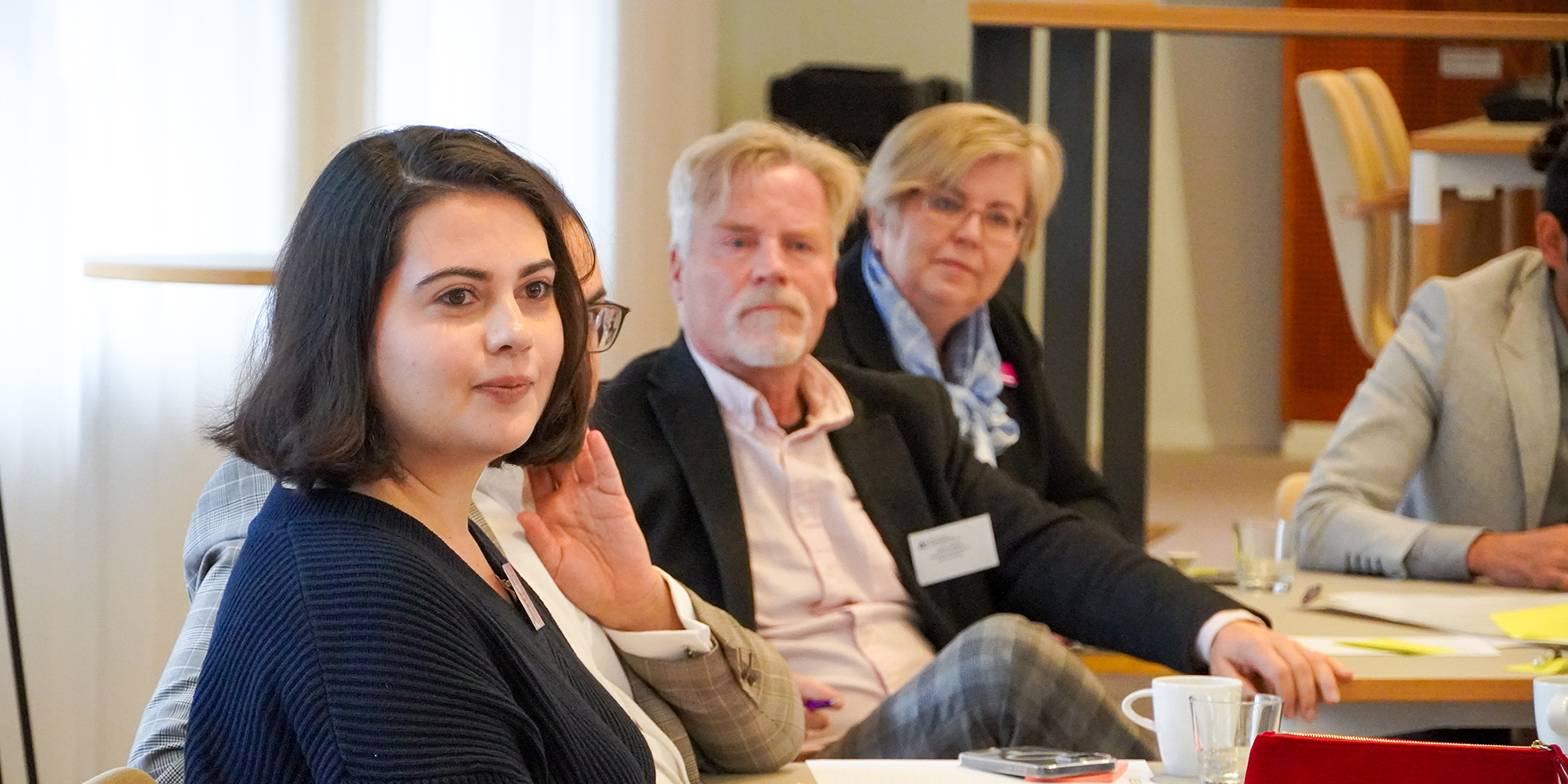Krista Jäntti got into programming in her twenties, when she was a biology student.
Her dance group needed a website. Creating the website required knowledge of html language. Jäntti knew nothing about it, but decided to learn.
She didn’t own a computer, but luckily the university computer lab had plenty of them.
She became extremely interested in IT and started attending computer science lectures.
“I was absorbed into that world. So, you could say dance led me to IT.”
AI is evolving rapidly: It’s essential to
keep up with the latest news and
test new tools as soon as
they are launched.
Now Jäntti works with artificial intelligence. Her company, EventuallyXR, helps other companies integrate new technologies into their business models.
Jäntti follows developments in AI, augmented reality and blockchains daily. AI is evolving rapidly: It’s essential to keep up with the latest news and test new tools as soon as they are launched. She also actively attends training courses and AI-related events.
Her advice to those who don’t know where to start:
You can use someone else’s structured prompts at the start, but I recommend learning your own way of communicating with a chat-based large language model— a way that feels natural to you.
You’ll get better responses from generative AI when you provide enough context before defining what you want it to do.
“Your next step is to create customized little helpers for your most common tasks.”
You can learn a lot about AI from YouTube videos. The number of followers of a YouTube channel often indicates how reliable and useful the content is.
We might end up overanalyzing
AI is exciting, but we should stay critical, Jäntti reminds us.
For example, AI tools can transcribe online meetings, and analyze what a person said.
A transcript shows who spoke the most in the meeting. But what tone did they use? How much of what they said was their own opinion? How much was based on fact?
“AI will increase the amount of data produced and how much we analyze. And the danger is that we’ll overanalyze it,” claims Jäntti.

Amid the hype about AI and efficiency, we mustn't forget our own well-being, says Krista Jäntti.
The interesting question is: will AI make us less intelligent or help us learn more effectively?
Jäntti is both excited and concerned about AI.
“I want to be a bit of a warning voice, asking whether we know exactly where we are going. AI has its good sides, but we have to stay cautious.”
Amid the hype about AI and efficiency, we mustn’t forget our own well-being. The human brain needs to recover and run on empty once in a while.
“We also need boring and inefficient moments.”
"It’s a cliché, but I seek out those who are wiser than me"
Jäntti has always been curious.
As a child, she took a screwdriver to an alarm clock and dismantled it to understand how it worked. She has always wanted to understand how a microwave oven, for example, or an induction stove or a cell works.
Her career has been led by her curiosity and desire to learn.
“First, I think ‘I want to know more about this’. Then at some point, I start to wonder if the knowledge I’ve accumulated could be used to make money.”
Learning isn’t always easy. For example, understanding blockchains initially felt “horribly difficult” to Jäntti.
Jäntti believes that as a geographically remote country with such a small population, Finland and Finnish companies will have to invest in education, continuous learning and technological excellence to remain competitive. Workplaces should not cut from learning.
Learning isn’t always easy. For example, understanding blockchains initially felt “horribly difficult” to Jäntti.
When she feels like this, she starts following experts in the field on social media and searching for events related to the topic.
“I try to network and find people who can tell me about their subject. It’s a cliché, but I seek out those who are wiser than me.”
Jäntti is currently learning screenwriting. She is part of a group comprising a screenwriter, an artist, and a voice actor who want to learn how to use AI in their work.
Storytelling through video and sound is new to her.
“I’ve been watching YouTube videos to learn about camera angles and how storytelling works through them. Once again, I’m absolutely enthralled.”
Follow these - Krista Jäntti's tips
Check out OpenAI's prompting tips. "Through them, your understanding of the fact that prompting is iterative and it's worth adding context and framing the topic to get the desired thing out will increase.
Follow Matt Wolfe and Matthew Berman on YouTube. "Wolfe presents the latest tools and phenomena, and Berman analyzes, among other things, the latest artificial intelligence news, focusing especially on robotics."
For the more advanced. "The MLOps community's videos analyze the functionality of various models, how to maintain and optimize models, and review the latest academic papers. In Alphasignal, they review the latest models and their architecture, and talk about the latest academic papers."
Read the latest news. "This newsletter compiles the most important AI news."
Listen to podcasts. "Andreessen Horowitz's podcast focuses on future technologies, culture and phenomena. There is a lot of discussion about artificial intelligence. Lex Fridman's podcasts are a mix of AI, politics, culture and philosophy."





















